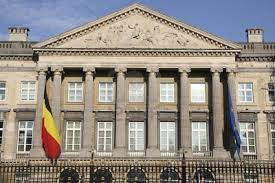THE REAL CRISIS IS ABOUT THE ROLE OF GOVERNMENT

Various labels - subprime, bank lending, sovereign debt and monetary - have been used since 2008 to describe the economic crisis. Yet its scope doubtlessly extends far beyond these spheres. The crisis poses a fundamental question for society about the role of government, squeezed between unpredictable global corporations and public debt that requires refinancing to guarantee social order.
Gorged on debt, governments are hostages to banking sectors, themselves prisoners of central banks that need to support private enterprise by constantly providing liquidity.
In 2008, governments saved the market economy but society saved free enterprise. The financial rescue was justified, as banks by definition exist to "manufacture" money. To abandon the banks would have been tantamount to demonetising debt and to a public debt repudiation. Governments also set in motion so-called economic stabilisers, in other words counter-cyclical mechanisms to increase government expenditure during economic downturns as revenue shrinks.
Compared with the options available in their economic bailout of 2008, governments are now dominated by the growing power of corporations. The latter have established and mapped out their own rules and standards in the name of self-regulation.
The role of governments could therefore change because legal jurisdictions suffer when national economic borders are eliminated. Activities traditionally in the state sector (health, education, security) could gradually switch to free market principles, with outsourcing to the private sector. This would mean the demise of the concept of a public good
Moreover, it is no longer just a question of less government at any price. We need to know how government, ie the embodiment of our community, will integrate seamlessly in collective and individual relationships. Clear-sightedness is needed on this point. Government's weighting in the economy may be excessive but it is not about to diminish drastically. But a lack of economic growth combined with disinflation is holding back growth so much that government will need to intervene in order to return the economy to a sound footing.
The extent of the damage to the social fabric becomes clear from this assessment. An economy in crisis combined with deflation should give rise to increased demands for assistance from the public authorities at a time when governments, bloated after years of growth, are being cut back. Left or right-wing perspectives do not alter the fact that, after the failure to reduce the role of the state during periods of growth, this situation has formed during a recession. Our past rulers were not particularly visionary, doubtless yielding to the partisan pressures of the moment. Our future rulers will have to handle social issues very wisely.
Furthermore, the current crisis marks the end of a model. We are witnessing the end of one based on complacency, a lack of vision and few prospects. Have we properly evaluated the importance of a younger generation facing patently contradictory demands? We ask it to pay off the outstanding debts of its elders at the same time as we hand it an economy beset by unemployment. Our economies are not ageing gracefully. They are brim-full of certainties about territoriality and eurocentric. There is no awareness that the world has spread upwards along vertical paths. We are imbued with a sense of our civilisation’s supremacy even though the world has moved on. With an ageing population, the younger generation cannot deliver a sufficiently powerful response.
Finally, our government policies are national whereas the market is global. The ideological debate in the coming years will be about the interaction of governments with the market, society with individuals, and public debt with private property. The resulting confrontations will come on top of a technological upheaval drastically shaking up the organisation of the commercial space.
Some will demand increased, or even wholesale, nationalisation of the economy to maintain social order. Others will say that this path leads to the elimination of any spontaneous initiatives. The unbearable burden of public debt will place the issues of default and social protest on the agenda. It is not certain that our democracies will survive massive public indebtedness that has become a social issue.
Past and future public debt, if extrapolated, could cause society to implode (rather than explode) with governments increasing their power with each new day.
As government and collective debts will be paid down using future private income, any implosion of society can be seen from another angle as triggering a massive deduction charge. Whatever the outcome, these transformations will challenge economic players and provoke violent ideological and social class conflicts. Greater government involvement will be invoked to redistribute a shrinking wealth pie, preserve public and social order, and guarantee the well-being of the population. The plaster over the sick economy will be torn away to reveal the different choices we face.
This assessment may be a pessimistic, but I am not. The economy is a permanent balancing act that reflects the intrinsic nature of human progress. Moreover, as the essayist Jean-François Revel used to say: a lifetime consists of a small number of years whilst history consists of millennia. The crucial issue is how the future is presented to society. A new world is emerging which bears the seeds of a gigantic transformation of society.
